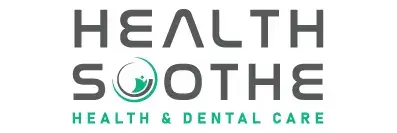If you are going to be employing pharmacists, it will benefit you to know the legalities surrounding licensure, practice scope, and handling controlled substances. In the same manner, when you hire pharmacy technicians, you will be required to match their credentials and duties to state codes.
This blog provides five important steps to ensure your hiring practices are compliant with the law in 2025 and demonstrates how collaborating with a healthcare staffing agency can make compliance more manageable. From a single shop to a large chain of pharmacies, these tips will serve you in creating a trustworthy, legally sound workforce.
Licensure and certification verification
Before you plan to hire pharmacists, make sure they possess a valid license from the state board of pharmacy. You can check this through state board websites or the National Association of Boards of Pharmacy’s e-Profile system. Pharmacists usually must complete 15 to 30 hours of continuing education every two years, so check on that as well.
For those who need to hire pharmacy technicians, as a facility, you need to see if your state mandates certification, e.g., from the Pharmacy Technician Certification Board (PTCB) or National Healthcareer Association (NHA).
For example, California requires registration with the state board and PTCB or NHA certification, while Florida doesn’t require certification but requires them to register with the state. Such a task can be made easier through a healthcare staffing platform that pre-verifying credentials, which will save you time.
Example: A pharmacy faced a consent order resulting in a 6-month actual suspension, an 18-month stayed suspension, 2 years of probation, and a $10,000 fine due to non-compliance issues. Proper adherence to regulations and pre-hire verification through a healthcare staffing agency could have prevented these penalties.
Know your scope of practice
There are certain rules in every state regarding what pharmacists and pharmacy technicians are allowed to do. When employing pharmacists, check your state’s regulations regarding their role, for example, prescribing medication or vaccinating patients. In 2025, Washington State permits pharmacists to prescribe contraceptives under certain guidelines, while Texas limits pharmacists from prescribing most medications and mandates physician supervision.
When you recruit pharmacy technicians, make sure their work complies with state legislation. Technicians can help prepare drugs but cannot offer advice to patients. Defined roles prevent employees from crossing legal boundaries. A health staffing platform can assist in aligning candidates with appropriate roles, reducing risk.
Compliance with controlled substances regulations
Pharmacies deal with controlled drugs, and as such, compliance with the Drug Enforcement Administration (DEA) and state legislation is non-negotiable. When you employ pharmacists, check if they are registered with the DEA to prescribe controlled drugs (Schedules II–V). For pharmacy technicians that you intend to hire, check them for drug convictions since they will be working with these drugs under supervision.
Example: A Texas pharmacy hired a technician without conducting a background check, and they later discovered a violation involving a controlled substance, which resulted in a DEA audit. Utilizing a healthcare staffing agency for complete pre-hire screenings could have averted this problem.
Compliance with labor and employment law
While hiring, healthcare facilities must align with federal laws, including the Fair Labor Standards Act (FLSA). Pharmacists are generally exempt from being paid overtime, but pharmacy technicians may not be, so confirm their status to avoid future pay disputes.
Additionally, comply with anti-discrimination laws, such as Title VII and the Americans with Disabilities Act (ADA), to ensure fair hiring practices. Facilities must verify work authorization through I-9 forms for all new hires.
Recruiters must stay updated with labor law changes, such as future minimum wage increases. When you partner with a healthcare staffing platform,it will guide you through these requirements so your recruitment process remains smooth and compliant.
Execute background checks and training
Background checks and drug testing are essential, especially for positions that deal with controlled substances. Fingerprinting is required for pharmacy personnel in some states, such as Florida. A healthcare staffing agency can handle these checks efficiently, reducing administrative work and letting you focus on patient care.
Once hired, healthcare facilities must offer training on 2025 regulations, including patient privacy laws (HIPAA) and procedures for handling controlled substances. Facilities must keep records of training to demonstrate compliance during audits. This ensures your healthcare team is prepared to work both legally and safely under federal law.
Staying compliant while building a strong pharmacy team
As 2025 unfolds, compliance with federal laws in pharmacy staffing will remain a top priority. Whether checking licenses and certifications, understanding the scope of practice, or carrying out thorough screenings, each step plays a crucial role. With the support of a healthcare staffing platform, you can simplify these tasks and confidently hire pharmacists or pharmacy technicians for your facility. Taking proactive measures helps your healthcare facility stay ahead of legal risks and operate smoothly. Do not overlook the importance of a hiring checklist and professional support when building your pharmacy team. Being compliant is not just about avoiding fines—it is about ensuring patient safety and protecting your facility’s reputation.

Isreal olabanji a dental assistant and public health professionals and has years of experience in assisting the dentist with all sorts of dental issues.
We regularly post timely and trustworthy medical information and news on Fitness, Dental care, Recipes, Child health, obstetrics, and more.





